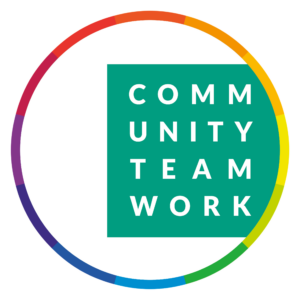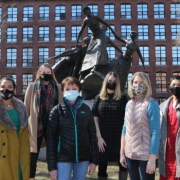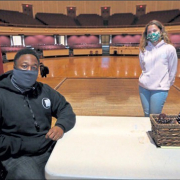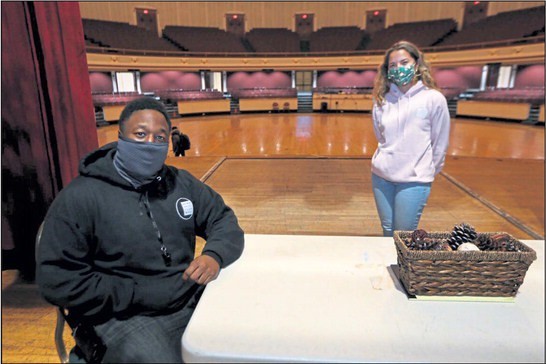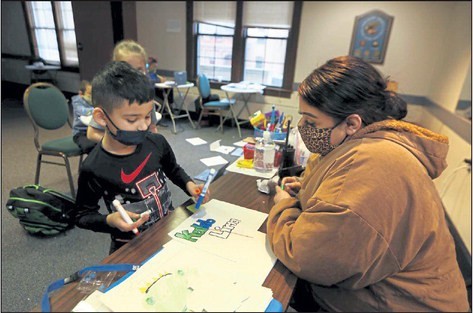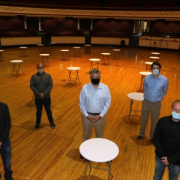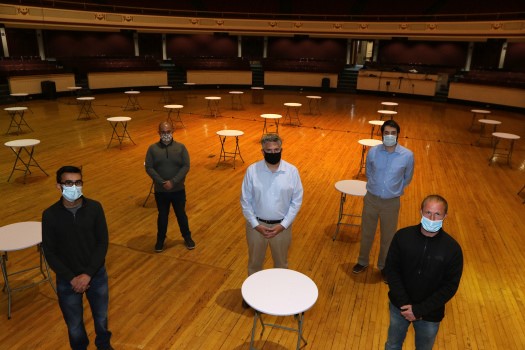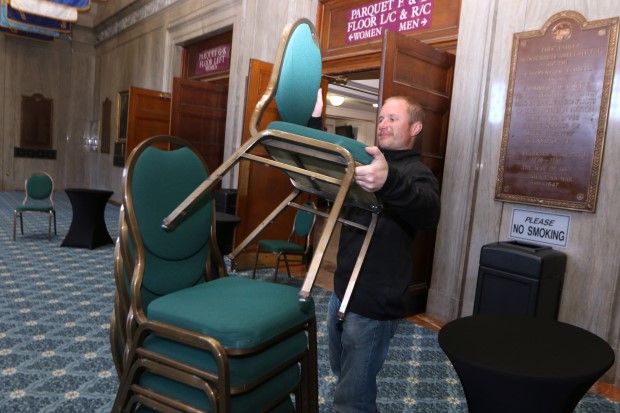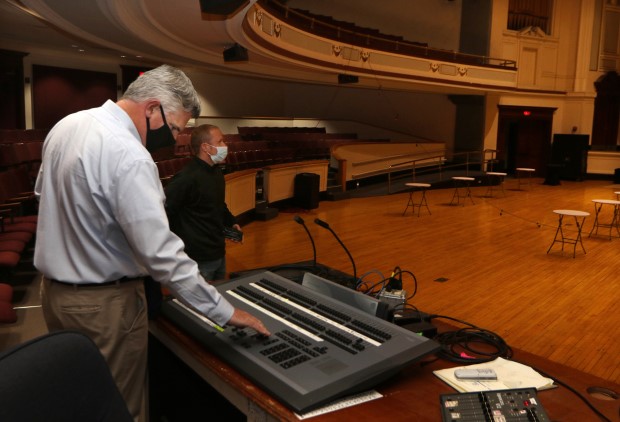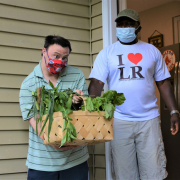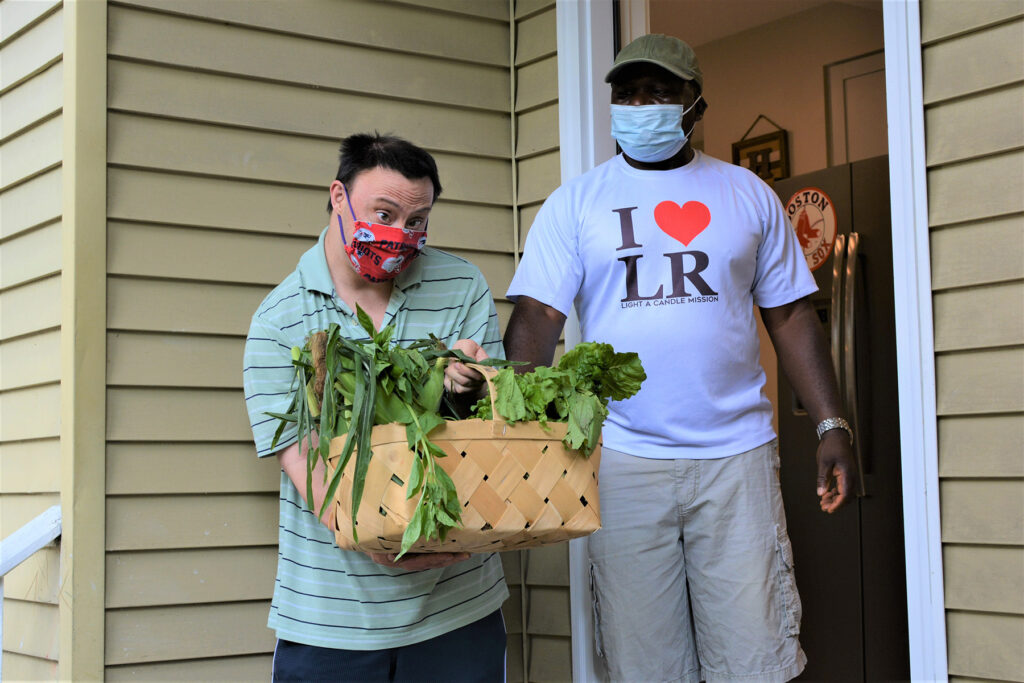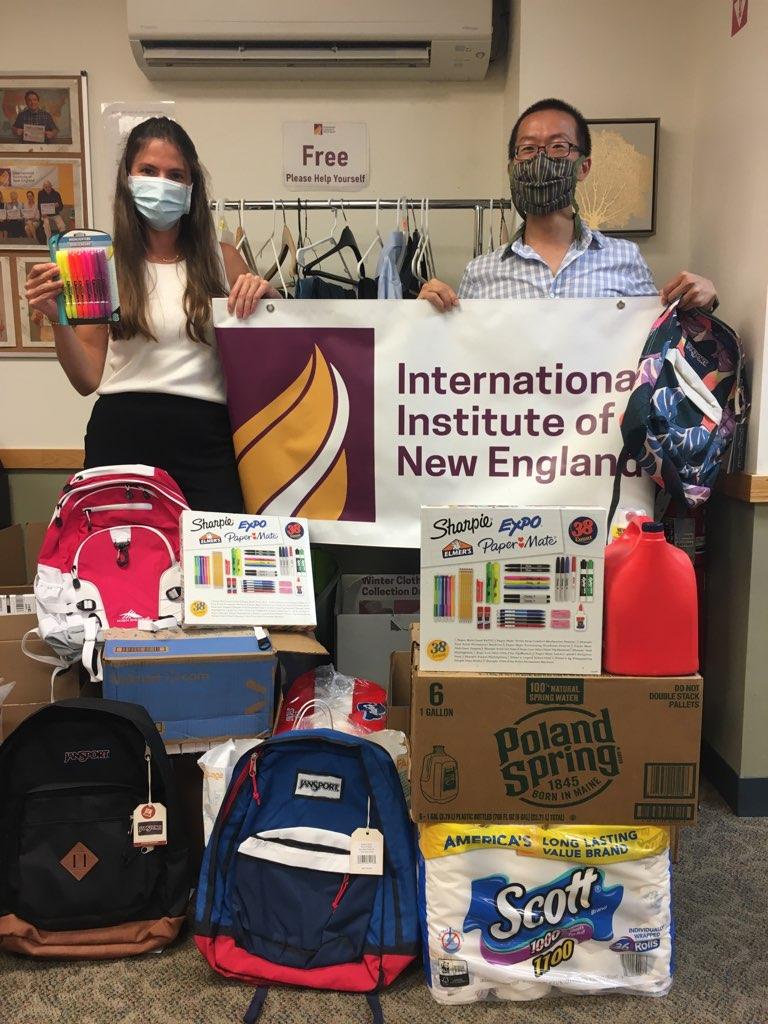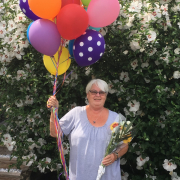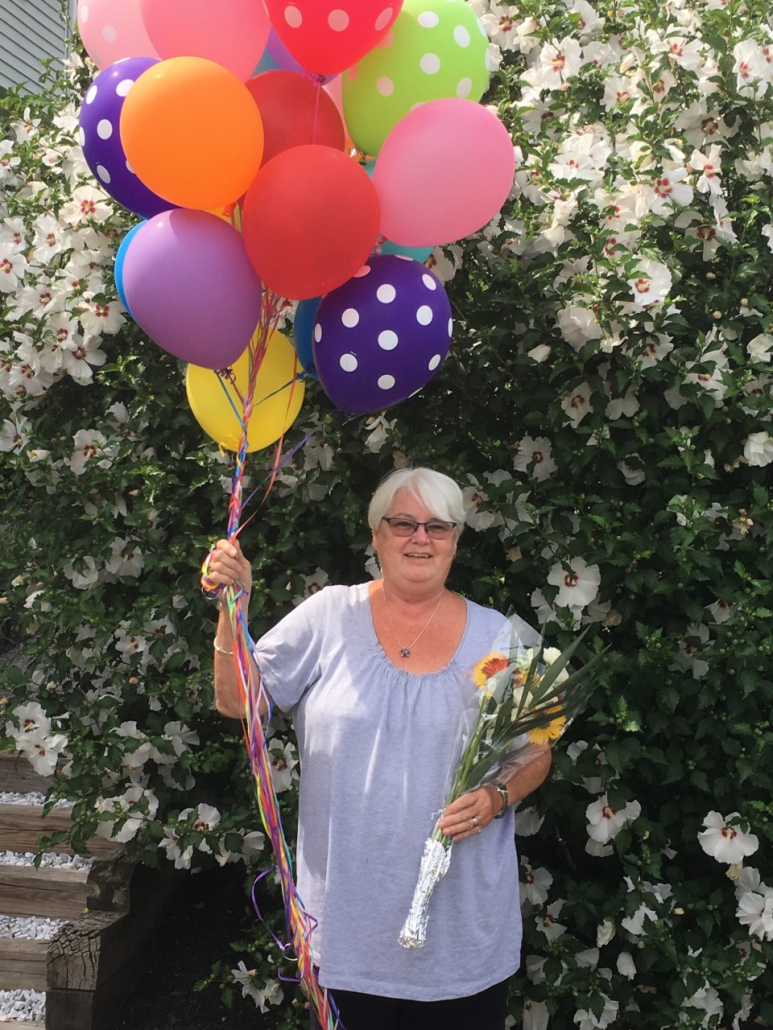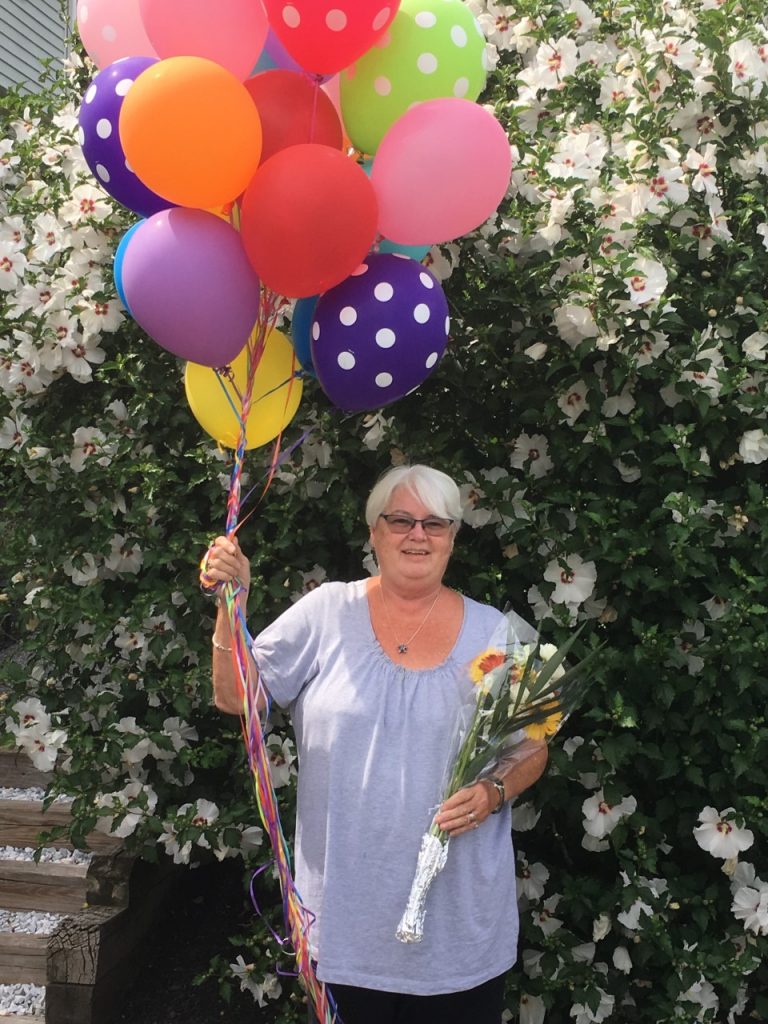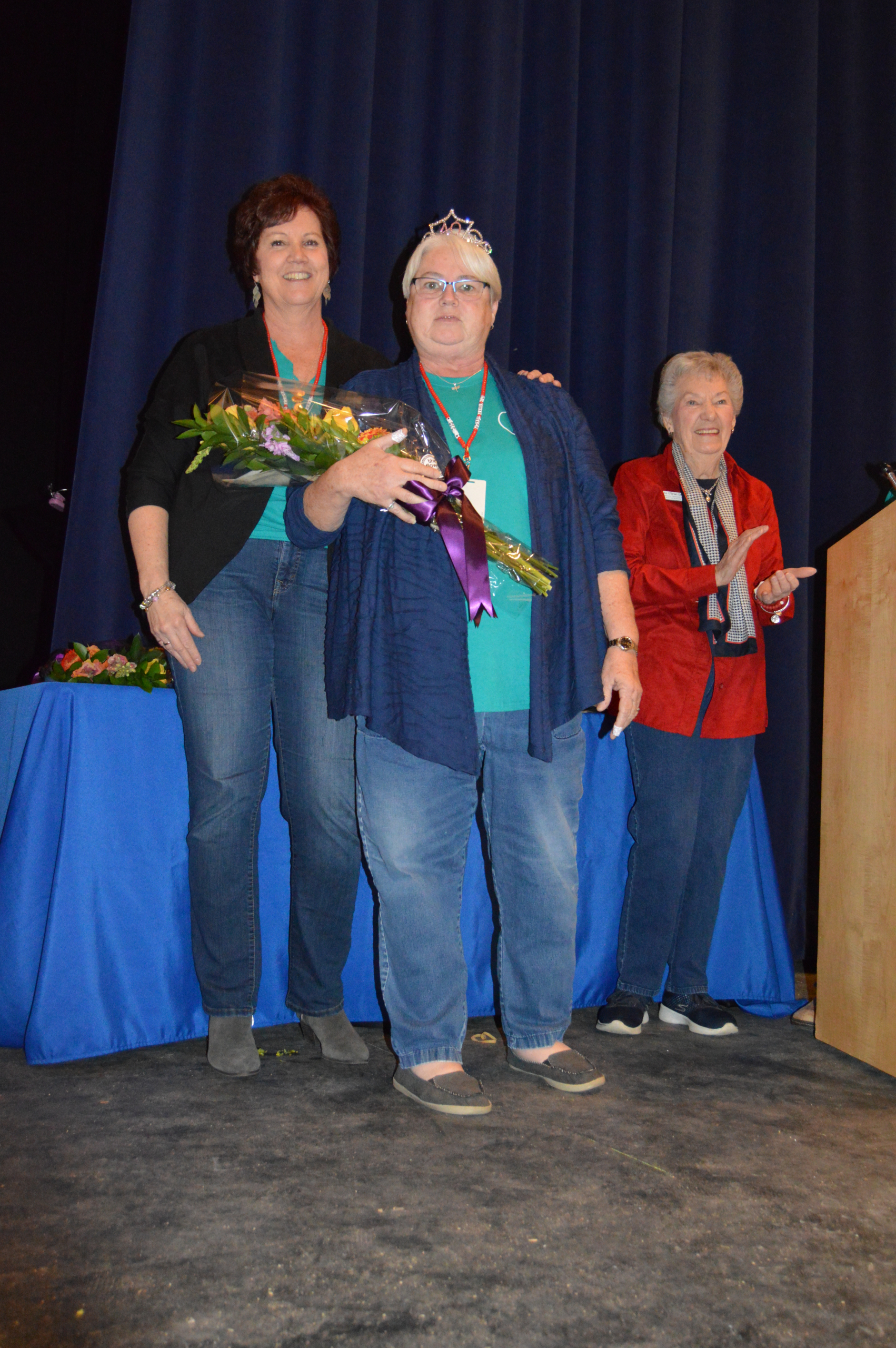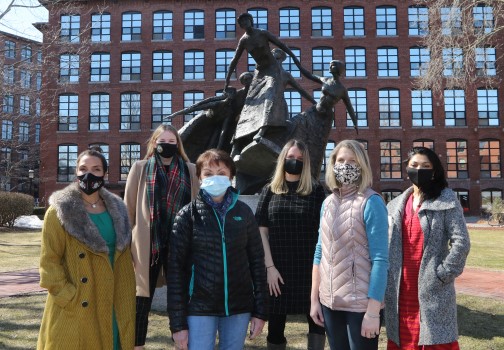
Lowell Women Keep City’s Small Businesses Running from Behind the Scenes
Influential Women in Lowell

Influential women in Lowell, by the Homage to Women statue on Market Street. From left, Franky Descoteaux, Christine McCall, Germaine Vigeant-Trudel, Danielle McFadden, Allison Lamey, and Soumita Acharya. JULIA MALAKIE/LOWELLSUN
By AMY SOKOLOW | asokolow@lowellsun.com |
March 21, 2021 at 10:39 a.m.
LOWELL — Although their work may be behind the scenes, Lowell’s business-minded women in leadership positions have arguably done more than many to keep the city’s small businesses afloat through the pandemic.
An informal group that began around the start of the pandemic to help Lowell’s business community has turned into a bridge-building experience between groups in Lowell, but also a tight-knit support system for these women, now known as the Lowell Business Recovery Task Force.
The group began when Christine McCall, just weeks into her new role as Lowell’s director of economic development, could see that the pandemic looming on the horizon could have detrimental effects on the city’s businesses. She quickly assembled a group of business leaders, many of whom are women, to discuss how best to support Lowell’s business community and how to disseminate information to them about how state regulations may affect their operations.
“It was Christine that kind of kicked us all off back in March, to really rein us in and say, ‘we’ve got to, you know, respond to the needs of the business community,’” said Allison Lamey, economic development director of the Lowell Plan and the Lowell Development and Financial Corporation. “Things were changing so quickly, and it was hard to get a handle on (the situation).”
Over the past year, the group has been involved with several initiatives to support the city’s businesses, each bringing their own expertise and network with them. The group’s initiatives have included a video package, spearheaded by Soumita Acharya, director for community programs at Lowell Telecommunications, to promote local businesses around the holidays, a “Lowell Shopping Network” similar to HSN, a “Five Star Frenzy” to encourage patrons to leave positive reviews at their favorite local businesses, and a “Takeout Tuesdays” weekly event, to name a few.
The group’s members will have also given $900,000 in flexible grants for small businesses by the end of this fiscal year, excluding marketing programs the city has done, according to McCall, and have helped businesses with moratoriums on other payments. Franky Descoteaux, who runs the Entrepreneurship Center at Community Teamwork, added that her organization raised $850,000 to provide free consultants to Lowell-area businesses during the pandemic.
“We’ve been meeting quite regularly to talk about how we can support the business community through the closures that were felt of the pandemic, and you know, what we could do about it,” Lamey said. “A lot of the work has been behind the scenes and not getting some of the recognition it probably deserves.”
Recognition is not ultimately the goal, though. “We all know what the common goal is, and it’s to help, and that’s really all we care about,” said Danielle McFadden, president of the Greater Lowell Chamber of Commerce. “We don’t care how it gets done, or who does it, or who or who gets credit. It’s just that we get it done. And that’s what I think is the power when you get a bunch of women together.”
McFadden added that many of these women face the added challenge of running their households during the pandemic. “You’re dealing with the challenges that you’ve always dealt with: the work-life balance, but now you have the kids at home, and worrying about everybody else’s mental health and everybody being happy, and a lot of times we put ourselves to the backburner,” she said.
These same challenges that affect the women in the group affect the women-owned businesses they serve, and likely do even more so. McCall said that the unemployment rate in Lowell is currently around 8%, higher than the state average, and that women have filed more unemployment claims than men overall, partially due to their outsize employment in the hard-hit hospitality industry and partially because of their childcare duties.
Kathleen Plath, co-owner of Cobblestones restaurant and others in the region, as well as director of marketing and communications and development at Community Teamwork, described the challenges she faced starting up her own business years ago, while also parenting three young children and earning her master’s degree. “How did I ever do that? But I think as women, we just put our heads down and get it done. You just do it. You’re not looking for credit, you’re not looking for any help,” she said.
Descoteaux added that the women the group serves often bear a heavier emotional burden when their businesses fail than men because of their childcare roles in the family and because now a majority of women take care of the finances in their businesses. She said that women may also have trouble accessing grants and loans because they are the predominant owners of sole proprietor-type businesses.
“It was very surprising to me as we were working with businesses… how many women felt that they had done something wrong, even though this is obviously a pandemic, many of the women still internalize their struggling business. And so we as women who are coaches and providing support, I know we carry that (burden),” she said.
Because many of these women also may not speak English as their first language, the group has teamed up to provide support and information in four languages: English, Spanish, Portuguese and Khmer. The group agreed that businesses owned by women of color were among those hardest hit by the pandemic.
Germaine Vigeant-Trudel, assistant director of the Local Development Financial Corporation, added that even as the pandemic subsides, she’s worried that women may not return to the workforce in full force, which some are calling a “shecesssion.”
“A lot of these women, even if they could go back to work, really couldn’t go back to work now, because they have to help their children and childcare was too expensive for the type of jobs (these women have), so it just adds the layers on and on,” she said. Plath said she has seen this first-hand as she tries to ramp up employment at Cobblestones.
Even though the situation now may look bleak, the group is encouraged by their successes so far, and plan to continue meeting, brainstorming and helping well after the pandemic ends.
“Yes, we’ve had some business closures in the city, and I’m sure there will be more, but I actually think, through the efforts of this group, we’ve done a really good job of supporting businesses and that’s why so many of them are still in business today, McCall said. “That should be our biggest success.”
McFadden agreed. “What I’m most proud of are the businesses that are still here, how fierce they are. I mean, really, you could just crawl into bed and put the blanket over your head and say, ‘I’ll deal with this when this is over and figure things out.’ But just the fighting spirit that Lowell has I think is amazing,” she said.
And she attributes some of that success to this group of women. “I’ve been in this position for almost 10 years, I’ve never felt closer with a group of people professionally. And also like, look at what we’ve done. When we can get together, watch out world!”
